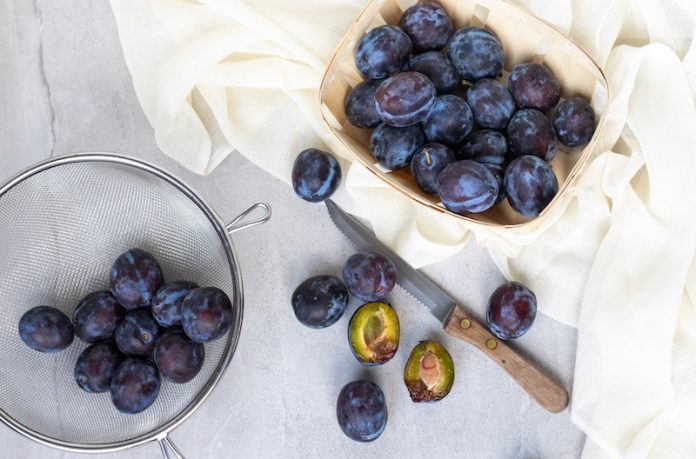
Prunes are dried plums that are sweet and chewy and do not contain any added sugar.
They are rich in vitamin B6, manganese, and copper, nutrients crucial for our body to properly release energy from the food we eat.
Moreover, prunes are abundant in vitamins and antioxidants, vital for boosting the immune system and promoting healthy cellular activities in our bodies.
In simple terms, this means they help our bodies fight against diseases and work efficiently.
Previous studies have consistently indicated that fruits and vegetables significantly reduce blood pressure, a crucial factor in maintaining heart health.
High blood pressure can lead to severe heart conditions and stroke if not managed properly.
Beneficial antioxidants in fruits and vegetables, along with other components, contribute to health improvements, such as reducing systolic and diastolic blood pressure, the two measures of blood pressure health.
Systolic refers to the pressure in the arteries when the heart beats, and diastolic is when the heart is resting between beats.
Researchers from Shifa College of Medicine embarked on a study to explore prunes’ potential benefits, specifically in heart health.
They tested 259 participants with varied blood pressure levels, dividing them into different groups.
Some groups were given prunes or prune juice daily, while a control group only received a glass of plain water every morning on an empty stomach.
The participants consuming prunes experienced a significant reduction in blood pressure levels compared to the control group, with those consuming a single dose of prunes (3 prunes) every day witnessing the most notable changes.
Intriguingly, consuming a double dose (6 prunes) had a pronounced effect only on the systolic blood pressure.
Additionally, the research revealed that the participants who did not consume prunes had increased HDL or “good” cholesterol levels in their blood.
This type of cholesterol helps eliminate other harmful cholesterol from the body, thus reducing the risk of heart disease and stroke.
On the other hand, the groups consuming prunes had reduced levels of cholesterol and LDL or “bad” cholesterol, high levels of which can increase the risk of heart-related ailments.
Based on the research, including prunes in our diet can potentially benefit controlling high blood pressure and, subsequently, protecting heart health.
High blood pressure, if left unchecked, can lead to several heart conditions, including heart attack and stroke.
Consuming prunes regularly can be a simple yet effective way to manage blood pressure levels naturally and ensure heart health.
If you care about high blood pressure, please read studies that early time-restricted eating could help improve blood pressure, and natural coconut sugar could help reduce blood pressure and artery stiffness.
For more information about blood pressure, please see recent studies about added sugar in your diet linked to higher blood pressure, and results showing vitamin D could improve blood pressure in people with diabetes.



